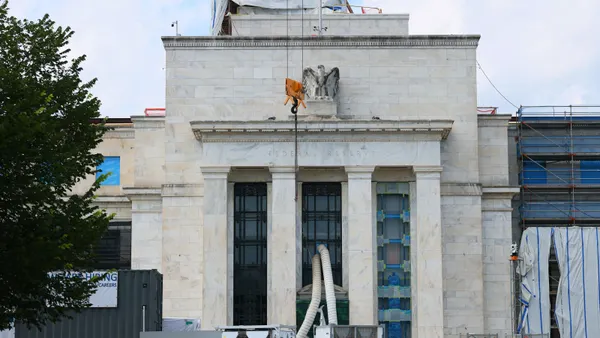Saudi Arabia tapped computer company IBM and card network provider Mastercard to move its payment system toward a more cashless future.
The two U.S. companies helped build a new instant payment system for the Saudi Central Bank that began operating recently, according to a joint April 21 press release. The new system is part of a Saudi government effort to make 70% of transactions in the country cashless by 2030, the release said.
The aim of the new Saudi system is “to improve the Kingdom’s financial ecosystem, mainly through the adoption of faster payments and improvements to banking reconciliation,” the press release said, noting that all Saudi banks now have the new system available for customers.
Specifically, IBM’s global business services consulting arm was selected in 2019 to lead the project’s system integration. It was the first such international government project that Armonk, New York-based IBM worked on, but the company expects to announce similar additional initiatives in other regions later this year, said Shanker Ramamurthy, IBM’s global managing partner of banking.
The new system began operating by late January, said Ramamurthy, calling the 18-month roll-out one of the company’s fastest system implementations.
Purchase, New York-based Mastercard, which provided its secure, real-time payment technology for the Saudi project, has worked on similar initiatives, including Clearing House’s real-time payment system in the U.S. and others in Thailand, Singapore, and the United Kingdom, the release said.
IBM has worked with the Federal Reserve payment system for some 50 years, including on the automated Clearing House network, Ramamurthy said, though he declined to comment on whether IBM is involved with the current FedNow project to develop a real-time system in the U.S.
Nordic countries, such as Sweden, have been on the forefront of cashless trends, and if Saudi Arabia achieves its 70% goal, it would rank among those countries that are the most cashless, at least by current standards, said Sarah Grotta, a director at the payments research firm Mercator Advisory Group.
Nonetheless, some countries, including Sweden, have encountered pushback to cashless campaigns because not all citizens are open to the effort, or equipped with the smartphones that enable electronic payments, she said.
The U.S. has been less focused than some countries in converting to a cashless society, partly because its citizenry is less open to mandates along those lines, Grotta said in an interview. “We don’t want to disenfranchise certain individuals who are really quite comfortable existing in a cash world,” she said of the U.S.
Saudi Arabia is on a different path. This “is a huge step forward that aligns with our ongoing smart solutions and payments modernization strategy, aimed towards achieving the assigned goals in vision 2030,” Saudi Payments Managing Director Fahad Al-Akeel said in the press release.
The Saudi Embassy’s commercial office didn’t immediately respond to an email asking what percentage of transactions are currently cashless in the country.
Clarification: A spokesperson for IBM clarified Mr. Ramamurthy's title.














